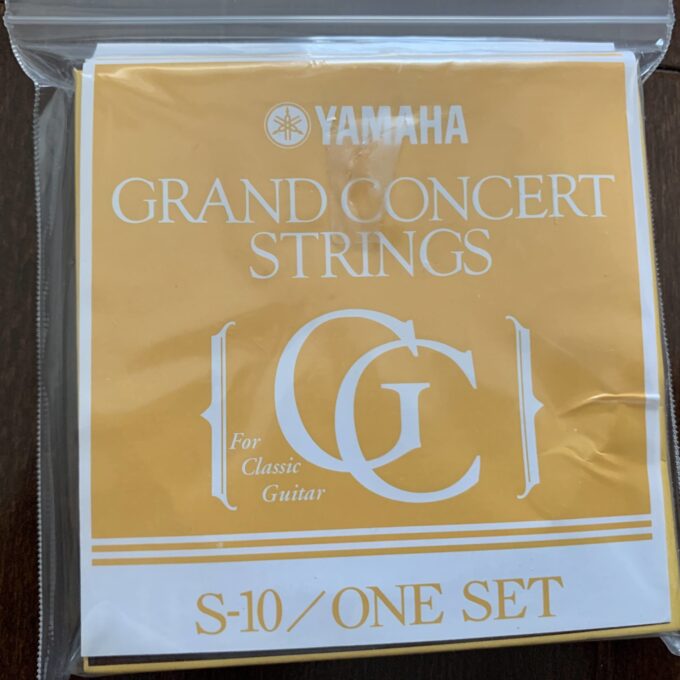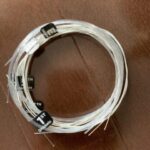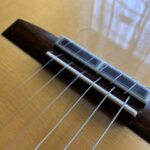This post is also available in:
![]() 日本語 (Japanese)
日本語 (Japanese)
When it comes to classical guitar strings in Japan, Figaro strings are probably the most popular, but Yamaha, a major manufacturer, also produces classical guitar strings. In fact, I had been avoiding Yamaha strings because I had a vague idea about them. I decided to give them a try. I found them to be very good strings with a very old-fashioned sound.

The following article summarizes the string reviews/impressions/information articles in this blog
You can read more about Yamaha classical guitar strings in this article:.
Yamaha sells two types of strings.
Yamaha currently offers two types of strings for classical guitar. Yamaha currently sells two types of classical guitar strings.
One is a cheaper version of the string called NS110:
The other is the high-end version of the Grand Concert, which we will review in this article:
Even though it’s a high-end version, it’s only about a thousand yen, so it’s pretty cheap compared to other recent strings.
These strings seem to be a standard set for Yamaha classical guitars. Maybe they can manufacture them in-house because they produce enough of them in-house.
For more information on Yamaha classical guitar strings, please refer to this article.
Grand concert strings with gorgeous packaging.
The first thing that struck me when I got the package was how thick it was. This is what it looks like from the side.
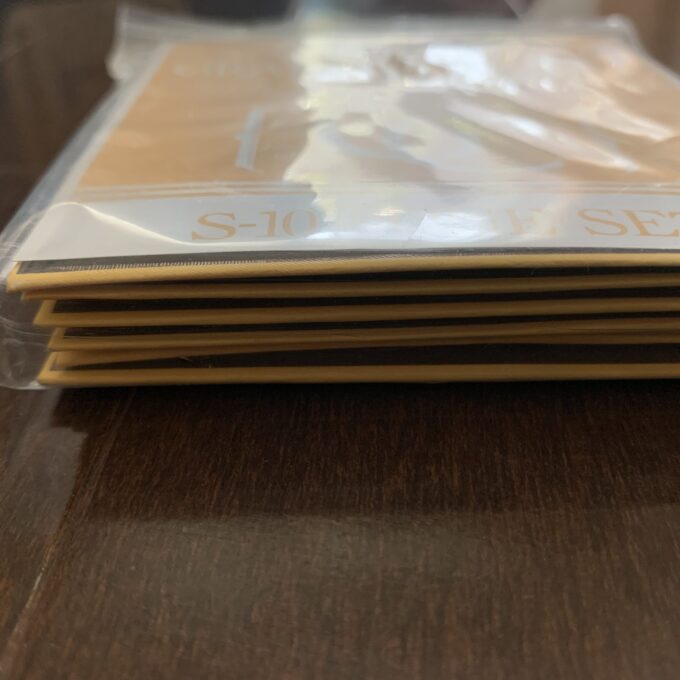
A normal set of classical guitar strings is much flimsier and thinner. They’re thicker than boxed classical guitar strings, even though they don’t come in a box. I’m sure you’ll agree.
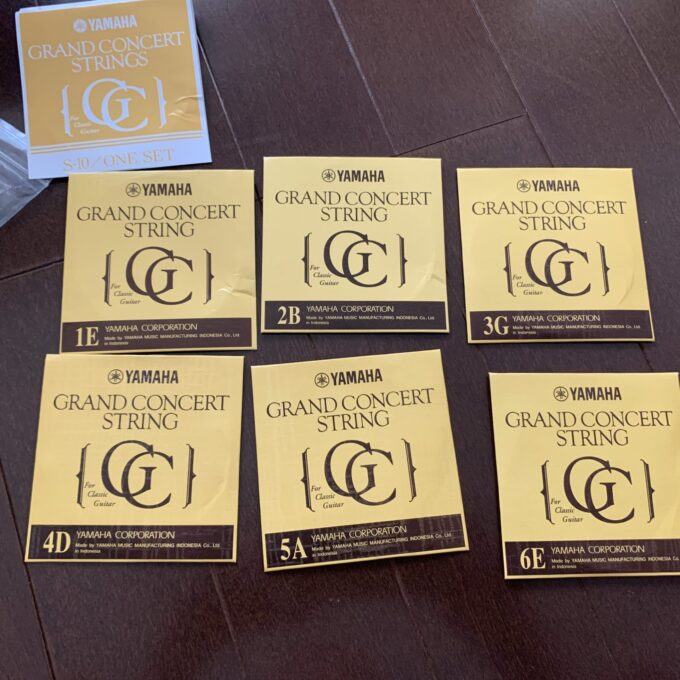
When I opened it up, I noticed that it was The envelope that each string is contained in is made of cardboard. When I opened it up, I found out that it was very thick. I guess it is to protect the strings, but I have never seen such a thick envelope before.
By the way, it says on each envelope that the strings are Made in Indonesia, not Japan. It seems that the strings are made in Indonesia. I guess it’s tough to be Japanese.
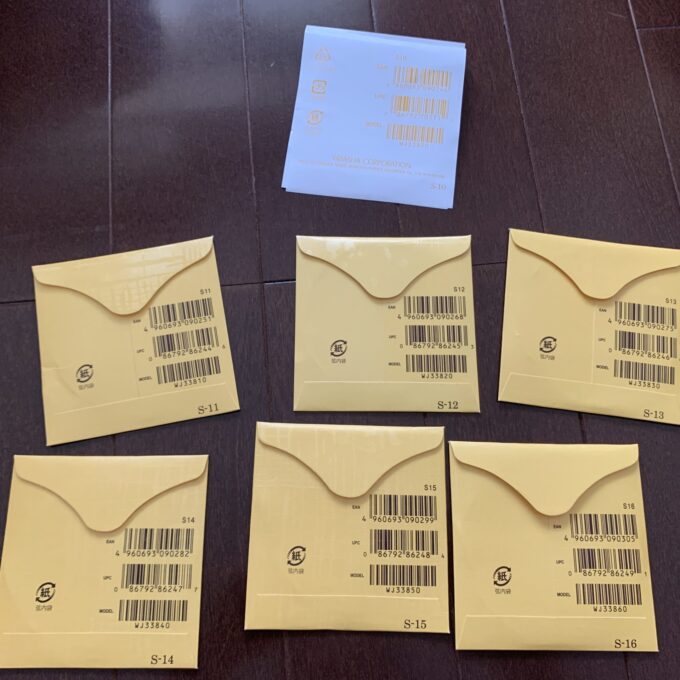
The model number is written on the back of the package. The set is S-10, and the first through sixth strings are S-11, S-12, …, S-16. S-11, S-12, …, S-16. Each string has its own barcode, so it seems that the strings are sold separately. That’s the Yamaha of the world.
Bass strings with a calm, warm sound.
The bass strings are regular silver plated copper wound strings.
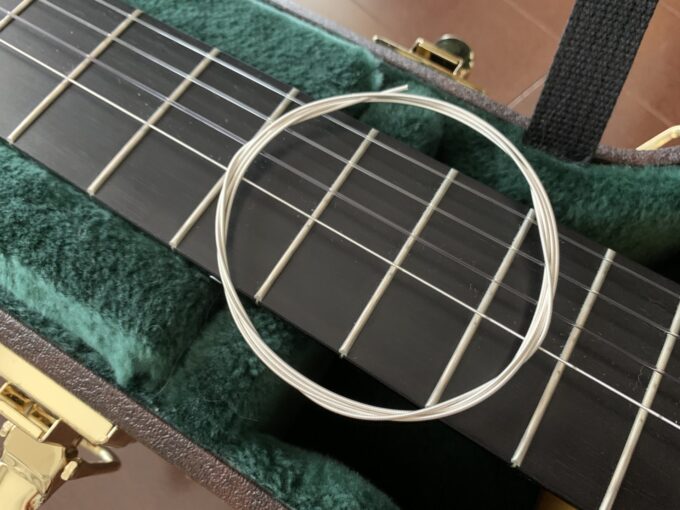
It’s a nondescript bass string, but it also has an old-fashioned classical guitar sound when played.
The sound is not a fast rising sound like the classical guitar strings that are so popular these days. Thick and warm sound It is a sound like a classical guitar. This is the kind of sound that a classical guitar should have.
For those of you who have been playing classical guitar for a long time, this is probably the sound that you started out longing for.
The tension is not strong, more like a medium to medium-low tension.
One thing that bothered me was that The fourth string is too thin and squishy compared to the sixth and fifth strings. The only thing that bothered me was that the strings were too thin. It seems to have no durability.
High-pitched strings that don’t squeak at all
This characteristic is also true for the treble strings, which are nylon strings.
It doesn’t have a fast rise, it doesn’t have a lot of volume, and the third string is what we call a blur. Still, it’s a sound that makes you think This is what a classical guitar sounds like. The third string is what you would call a blur. The third string is what you would call muffled.
People who use carbon strings all the time will be healed by using these strings once in a while.
The third string is rather thick, but overall I didn’t feel that much tension, and I found it easy to play.
Even those who are pursuing a modern sound should use it at least once.
These days, strings that rise quickly and are loud are highly prized.
I hope that those who are pursuing such a sound will stop and try these strings.
I think you can feel the sound of classical guitar for Japanese people, which is different from the old-fashioned strings of Augustine and Pro Arte. The price is also very reasonable.
If you’ve been avoiding Yamaha just because of the manufacturer’s name, you may be missing out.
